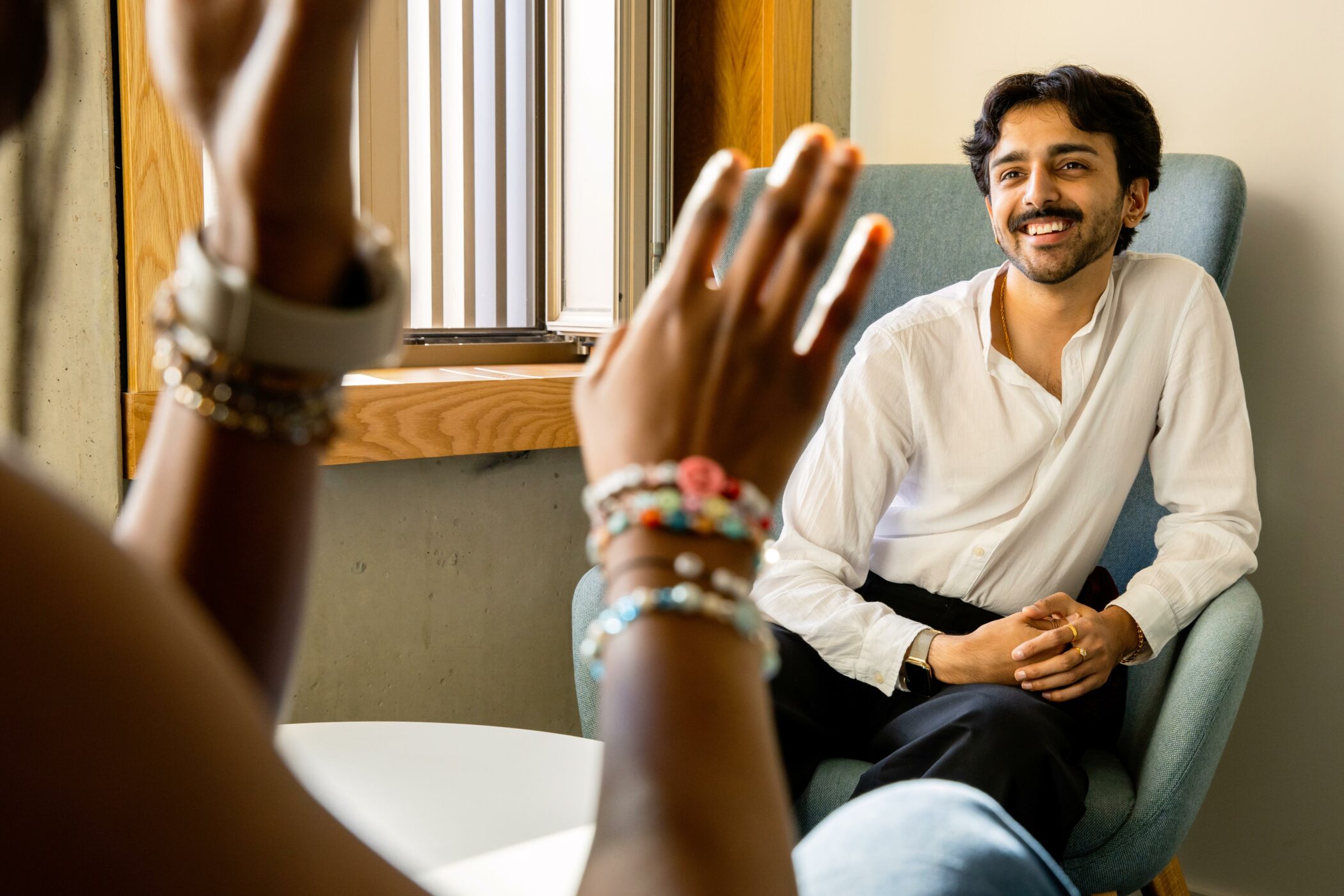Studying Economics at Cambridge
- UCAS Code: L100
- How many are admitted to Cambridge every year: 163
- Minimum offer: A*A*A
- Essential subjects: Mathematics
- Useful subjects: Further Mathematics
The University of Cambridge was ranked Number 1 for Economics in the Complete University Guide 2024. Several members of the Faculty have been awarded the Nobel Prize in Economics including Sir John Hicks, James Meade, Sir Richard Stone, Sir James Mirrlees and Amartya Sen. Faculty members advise the Bank of England, the United Nations, the World Bank and the International Monetary Fund.
The course provides a sound understanding of core, pure, and applied economics. You will find yourself studying economics in considerable depth, while also using ideas and techniques from many other disciplines.
In the first year (Part I of the Tripos), everyone takes the same five modules (or ‘papers’ as they are called at Cambridge). These are: Microeconomics, Macroeconomics, Quantitative Methods in Economics, Sociology and Politics, and British Economic History since 1750.
In the second year (Part IIA) all students are required to study three compulsory papers, namely: Microeconomics, Macroeconomics and Econometrics. In addition, you will be able to choose one optional paper from a list that includes: Mathematics, Sociology, Economic Development and Labour Economics.
In the third year (Part IIB), all students will again be required to take two compulsory papers: Microeconomics and Macroeconomics. In addition, you would be able to choose two optional papers and write a dissertation.
The Marshall Society
As a student at Cambridge, you will have the opportunity to join the Marshall Society. It is a student-run society which organises social events and informal lectures from distinguished visiting speakers.
What can I do with a degree in Economics?
The Economics course will teach you to communicate well, understand complex arguments and analyse practical issues and data. These skills are valuable in many careers and many of our graduates go on to work as professional economists in industry, government and financial institutions. Many also progress to professional training in chartered accountancy and actuarial work or continue onto Masters’ degree courses at Cambridge and elsewhere.
For more information, please visit the University Careers Service website at: Using your degree: Economics | Careers Service

Studying Economics at St Edmund’s College
St Edmund’s is home to a small group of Economics undergraduates as well as postgraduates on a variety of Economics based MPhil and PhD courses. You will find yourself part of a ready-made community of economists where subject conversations continue beyond lectures and into the social areas of the College.
Teaching is divided between the Faculty and the College. Lectures, normally given in the morning, are provided by the Faculty. Students attend lectures with Economics students from all the Cambridge Colleges so numbers attending lectures often exceed 150. Supervisions, normally in groups of three to four students, are provided by the College and give students the opportunity to discuss topics with experts in the field. You are normally expected to submit written work in advance of each supervision. There are two or three supervisions a week, so the pace is tough!
The college offers several spaces where you can study and work on your essays including the Paul Luzio Library building, the Norfolk library, study desks in the Mount Pleasant Halls Common room, the comfortable couches of the CR, in Edspresso, our café, or the benches in our lovely apple orchards!
We also have six study rooms (2 in the Luzio building, 2 in Norfolk building, and 1 in Mount Pleasant Halls), where college supervisions typically take place, and which can also be booked by students for their private study time or group projects.
Our college also has an extremely supportive Welfare and Wellbeing Department, which is happy to lend an ear and provide support should a student feel anxious or overwhelmed with the academic year.
How to Apply
Applications for all courses are made through UCAS. You must apply by 15 October 2025 to be considered for entry in October 2026. Applications for 2025 entry have already closed.
Tests
Interviews
Deferred entry
Affiliated students
What is a typical Term’s work
At Cambridge, nearly all of the teaching for Economics takes place in two eight-week terms. The Faculty of Economics provides around 30 to 40 hours of lectures for each paper, so all students can expect to have between 8 to 12 hours of lectures in a typical week.
In addition, your Director of Studies at St Edmund’s will organise around 10 hours of small-group teaching sessions, called ‘supervisions’ for each paper. So, you can expect to have two or three hours of supervisions every week. During these supervisions, which are typically highly interactive, your supervisor will cover whatever assignment you have been set in advance of the supervision (usually problems and/or essays), provide constructive feedback, answer any questions and engage you in a wide-ranging conversation about that week’s topic.
People
Dr Yi Wei, Director of Studies


